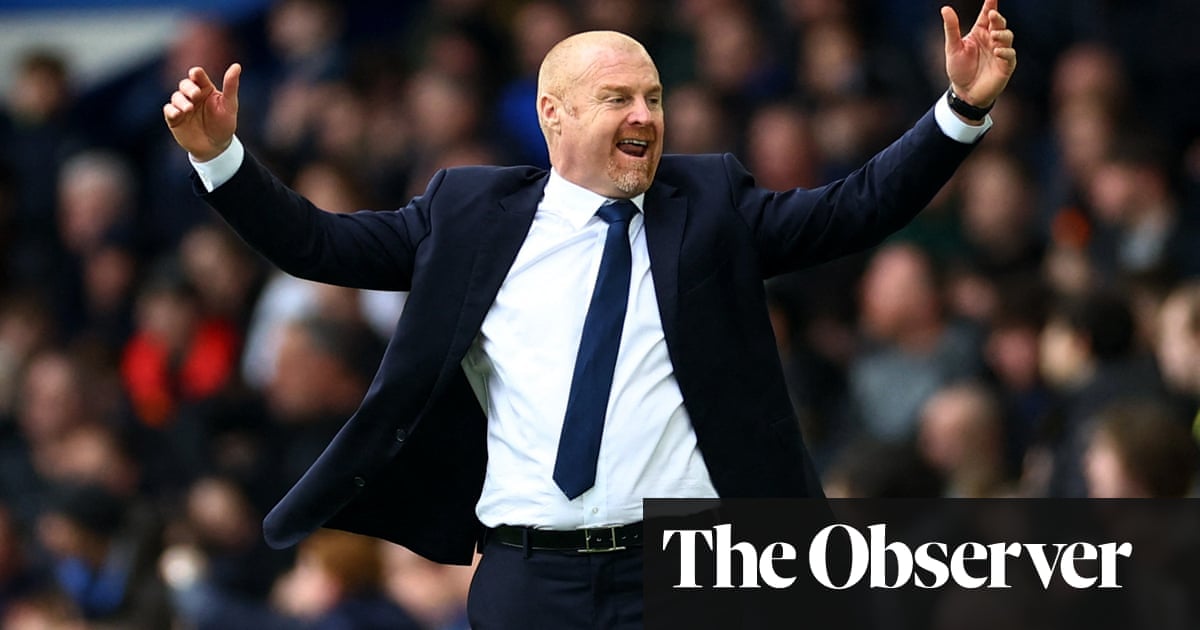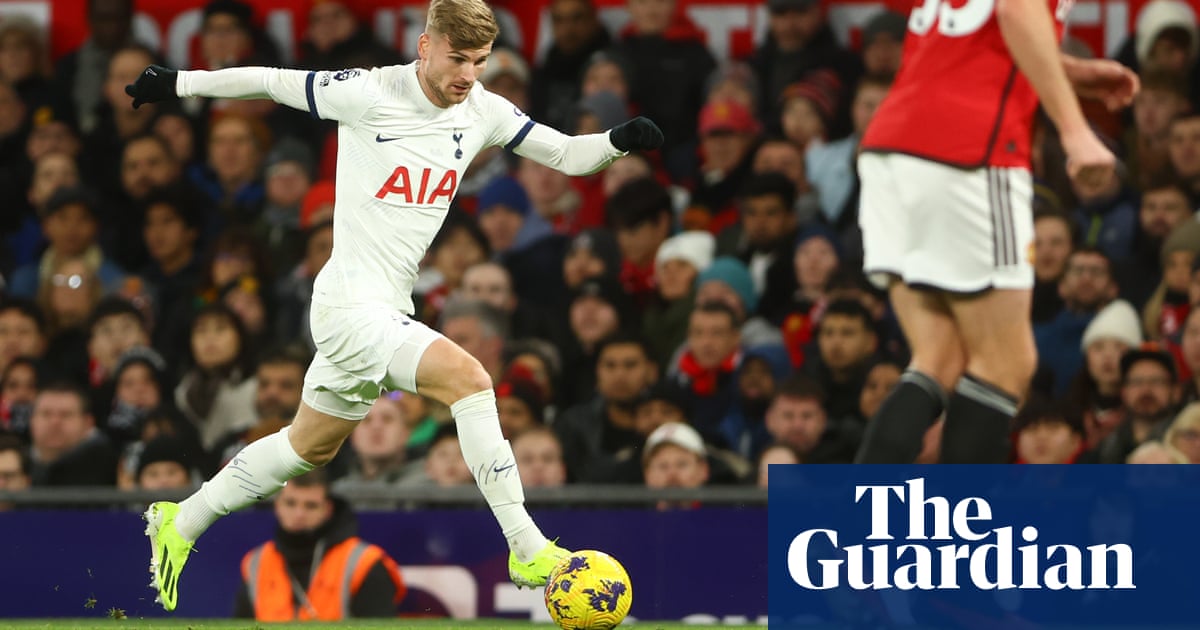
n the opening weekend of the Premier League season, Chelsea went to Old Trafford, controlled possession for long periods, hit the woodwork twice and were beaten 4-0, shredded on the break again and again. The pattern for Frank Lampard’s first season in the Premier League was immediately set: Chelsea, good with the ball; not so good when they lose it. They have lost twice more to Manchester United since and, on Sunday afternoon, face them again in an FA Cup semi-final.
Lampard is widely considered to have had a decent campaign. Even with the competition’s diminished status, an FA Cup final and perhaps a first trophy would augment that – perhaps more so this year than for a while, given the oddity of the season restarting with the league in effect already won, leaving the Cup as the one domestic trophy still available. But doubts still remain, notably about Chelsea’s defensive record.
The circumstances in which Lampard took over, with Eden Hazard finally sold and a transfer ban in place, were not easy. He lacks experience and the tendency for now seems to be to be sympathetic to his need to learn on the job rather than to ask why Chelsea appointed somebody with so little experience.
Perhaps it will prove an inspired gamble on a player who came to symbolise the club’s most successful years; certainly the style of the football has been quicker, more dynamic, more obviously exciting than most of that played under Maurizio Sarri. Chelsea finished third last season and if they win their two remaining league games, against Liverpool and Wolves, they will do so again, albeit with three fewer points. With Leicester stuttering, they should qualify for the Champions League.
All of that is positive. But Chelsea have conceded 49 goals in 36 league games. Only once in the past 23 years have they let in more than that over the whole season; if they let in four in those final two matches, this will equal their worst season defensively since 1996-97.
But the concern is not just that Chelsea are leaking goals, it’s the manner of those goals and that little seems to have changed since that opening Sunday at Old Trafford. From Anthony Martial via Andriy Yarmolenko to David McGoldrick, Chelsea keep being undone on the counter. No team in the Premier League has conceded more goals to fast breaks this season. That is something that cannot be blamed on what Lampard inherited: last season they conceded the sixth fewest.
When José Mourinho first arrived at Chelsea 16 years ago, he outlined his understanding of how the game has four phases: attack, defence, and the transitions from one to the other. More and more, it feels, what sets the very best apart from the rest is how they manage the transition from attack to defence, knowing when to counter-press, how to do it effectively and when to drop back to regain the defensive shape. Liverpool have won the title to a large extent because of their excellence in that regard.
Getting that right demands intensive hours on the training ground, as does rectifying Chelsea’s other obvious defensive weakness: set plays. Chelsea have leaked 12 goals from crossed set-pieces this season, three more than last season, and more than any side in the division other than Norwich and Aston Villa.
It is far from definitive and, as Lampard said after the defeat at West Ham, it may be as simple as him needing taller players (or better players; Liverpool’s record from set-plays improved overnight with the signing of Virgil van Dijk). But still, as Lampard acknowledged on Friday, the coincidence of two aspects of defending that require detailed drilling must be a concern.
There are mitigating factors. There is no really commanding figure at centre-back. Lampard clearly is unconvinced by Marcos Alonso at left-back. In midfield, he is still dealing with the confusion created by Sarri’s acquisition of Jorginho, a hugely talented player who demands an idiosyncratic style of football that doesn’t necessarily suit the Premier League or the rest of the squad.
That N’Golo Kanté is suffering his poorest season in English football may be more to do with the stresses of the legal action he is involved with in France than with Lampard’s coaching. But defending against the counter was a problem for Lampard last year as well: no side in last season’s Championship conceded a higher proportion of goals to fast breaks than his Derby.
S ome sympathy is certainly due to Lampard in that he has inherited in Kepa Arrizabalaga a goalkeeper who, like Claudio Bravo, seemed to dematerialise on arrival in England. The confident and aggressive figure of Bilbao has become weirdly cowed and occasionally petulant. Since Opta began collecting the data in 2003, no side has conceded a higher percentage of shots on target, the 44.5% Arrizabalaga is letting in far exceeding the 42.9% achieved by Artur Boruc (with some help from Adam Federici) at Bournemouth in 2015-16.
It’s no great surprise that, as Atlético Madrid’s assistant manager, Germán Burgos, confirmed this week, Chelsea are interested in signing Jan Oblak. How plausible that is given he has a release clause of £108m and Chelsea are unlikely to recoup anything like the £73m they paid for Arrizabalaga is debatable and they have been linked with a number of other goalkeepers, including Trabzonspor’s Ugurcan Cakir.
Last season, Lampard’s Derby played Marcelo Bielsa’s Leeds four times. They lost the first three then, somehow, won the one that mattered by sufficient goals to reach the Championship play-off final. Whether that was more down to a Leeds collapse or Lampard learning his lessons depended on who you believed, but Sunday’s game offers a similar dynamic.
After three defeats to Ole Gunnar Solskjær’s United, can Lampard win the one that matters? Can he find a way of stemming the counterattacks on which United thrive? Or is he doomed to re-enact the same disappointment, to be once again undone by that fatal weakness in transition?












